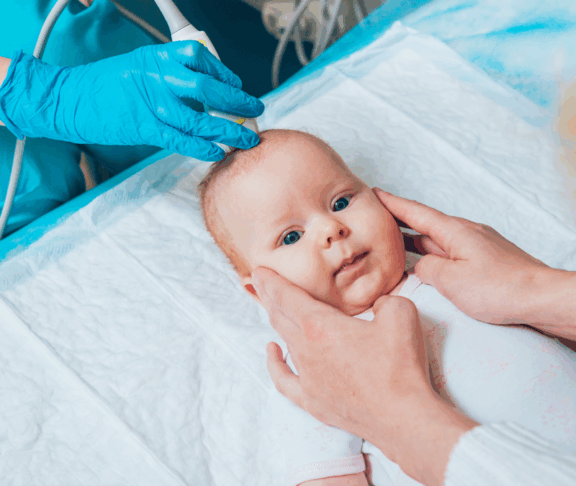
Amanda Pichini
Clinical Director, Genomics England
A study led by Genomics England in partnership with NHS England is looking to understand whether we can improve the ability to diagnose and treat genetic conditions from birth.
Following the Generation Study’s launch in 2024, we’re seeing real impact for families living with rare conditions.
Earlier diagnoses and treatment
The Generation Study is looking to improve how we screen for rare genetic conditions for better outcomes. Currently live in over 30 hospitals, it’s using whole genome sequencing to look for over 200 rare conditions in 100,000 newborns.
Children with a condition are diagnosed sooner than they typically would. The average time to receive a rare condition diagnosis is around five years.1 For those in the Generation Study, it’s a matter of weeks or months. These children are accessing life-changing treatment that can profoundly shape their development and future.
Other countries also run studies exploring newborn genomic sequencing, but the Generation Study is unique in how it’s been embedded within the NHS. Families who need treatment can receive it equitably and from the right specialists. We’re encouraged by feedback from participating families, and results are making an impact.
Our ambition is to give everyone the
chance to benefit from genomic
medicine — not just those currently
able to receive a diagnosis or treatment.
Supporting broader research
The study will help drive better understanding of rare conditions, genetics and our health, as well as open avenues to developing new treatments by supporting broader research. Approved researchers will be able to conduct approved healthcare research using the consented, de-identified data collected. Researchers will not know the babies’ identities. Our ambition is to give everyone the chance to benefit from genomic medicine — not just those currently able to receive a diagnosis or treatment.
Providing data and evidence for a preventative shift
We have a lot to learn about how genome sequencing in newborns might work, and we continue to ensure this is carried out safely and transparently. When complete, the study will generate valuable evidence about offering whole genome sequencing as part of screening for rare genetic conditions at birth. The study has enormous value for participating families and in supporting a shift towards preventative healthcare. We’re excited to continue building on what we’ve learned so far to realise this potential.
[1] Jefferies, N. 2024. NHS England. Diagnostic odyssey in rare disease.


